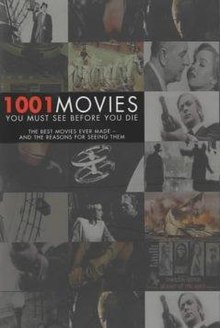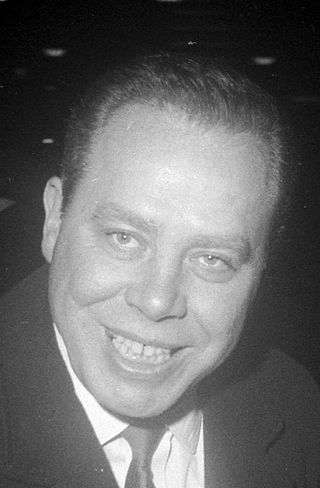
Helmut Zacharias was a German violinist and composer who created over 400 works and sold 14 million records. He also appeared in a number of films, usually playing musicians.

Sleeper is a 1973 American science fiction comedy film directed by and starring Woody Allen, who co-wrote it with Marshall Brickman. Parodying a dystopic future of the United States in 2173, the film involves the misadventures of the owner of a health food store who is cryogenically frozen in 1973 and defrosted 200 years later in an ineptly led police state. Contemporary politics and pop culture are satirized throughout the film, which includes tributes to the classic comedy of Buster Keaton, Harold Lloyd, and Charlie Chaplin. Many elements of notable works of science fiction are also paid tribute to, or parodied.

The Giant Schnauzer is a breed of dog developed in the 17th century in Germany. It is the largest of the three breeds of Schnauzer—the other two breeds being the Standard Schnauzer and the Miniature Schnauzer. Numerous breeds were used in its development, including the black Great Dane, the Bouvier des Flandres, and the German Pinscher. Originally bred to assist on farms by driving livestock to market and guarding the farmer's property, the breed eventually moved into the city, where it worked guarding breweries, butchers' shops, stockyards and factories. It was unknown outside of Bavaria until it became popular as a military dog during World War I and World War II.

Point Blank is a 1967 American crime film directed by John Boorman, starring Lee Marvin, co-starring Angie Dickinson, Keenan Wynn and Carroll O'Connor, and adapted from the 1963 crime noir pulp novel The Hunter by Donald E. Westlake, writing as Richard Stark. Boorman directed the film at Marvin's request and Marvin played a central role in the film's development. The film grossed over $9 million at the box office in 1967 and has since gone on to become a cult classic, eliciting praise from such critics as film historian David Thomson.
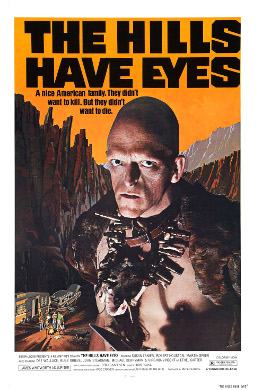
The Hills Have Eyes is a 1977 American horror film written, directed, and edited by Wes Craven and starring Susan Lanier, Michael Berryman and Dee Wallace. The film follows the Carters, a suburban family targeted by a family of cannibal savages after becoming stranded in the Nevada desert.
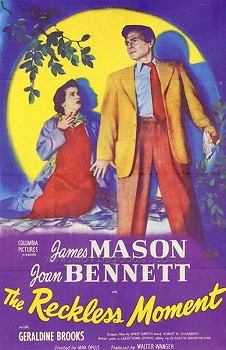
The Reckless Moment is a 1949 American film noir melodrama directed by Max Ophüls, produced by Walter Wanger, and released by Columbia Pictures with Burnett Guffey as cinematographer. It starred James Mason and Joan Bennett. The film is based on The Blank Wall (1947), a novel written by Elisabeth Sanxay Holding. The 2001 film The Deep End is a remake based on the same source material.

Peggy Shannon was an American actress. She appeared on the stage and screen of the 1920s and 1930s.

Seconds is a 1966 American psychological horror science fiction film directed by John Frankenheimer and starring Rock Hudson, Salome Jens, John Randolph, and Will Geer. The film tells the story of a middle-aged New York banker who, disillusioned with his life, contacts an agency known as "The Company" which specializes in providing "rebirths" under new identities and appearances altered by plastic surgery. The screenplay by Lewis John Carlino was based on the 1963 novel of the same title by David Ely.

Heaven and Earth Magic is a 1962 American avant-garde independent cutout animation film directed by visual artist, filmmaker and mystic Harry Everett Smith. Jonas Mekas gave the film its title Heaven and Earth Magic in 1964/65.
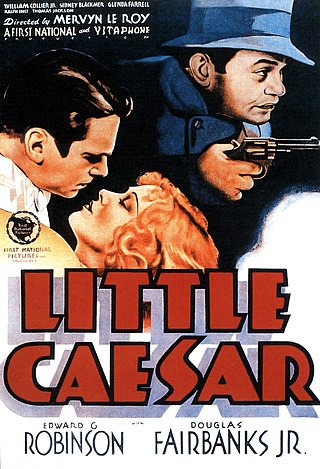
Little Caesar is a 1931 American pre-Code crime film distributed by Warner Brothers, directed by Mervyn LeRoy, and starring Edward G. Robinson, Glenda Farrell, and Douglas Fairbanks Jr. In 2000, Little Caesar was included in the annual selection of 25 motion pictures added to the National Film Registry of the Library of Congress being deemed "culturally, historically, or aesthetically significant" and recommended for preservation. The film tells the story of a hoodlum who ascends the ranks of organized crime until he reaches its upper echelons. The storyline, based on real life Mafia boss Salvatore Maranzano, was adapted from the novel of the same name by William R. Burnett. Little Caesar was Robinson's breakthrough role and immediately made him a major film star. The film is often listed as one of the first fully-fledged gangster films and continues to be well received by critics. The Library of Congress maintains a print.

The Old Zoo is a modern country house in Brockhall Village, Lancashire, England, 6 miles (10 km) south-west of Clitheroe.
